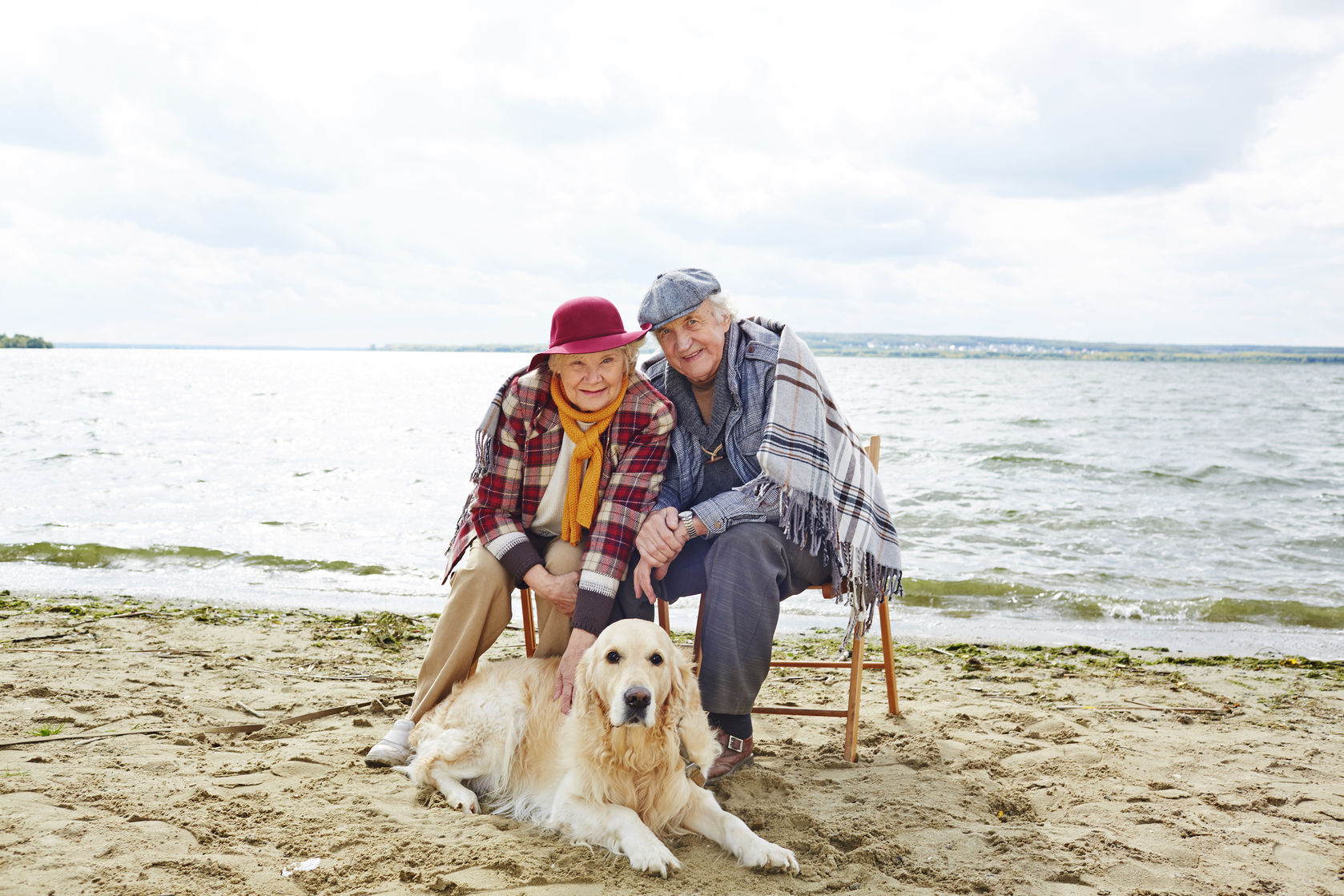Taking Care Of Your Older Pet
 May 24, 2017
May 24, 2017
Do you share your home with a golden oldie? Looking for some top tips on how to keep your old dog healthy and comfortable? We look at some ways you can improve the quality of life of your ageing pet.
Age is just a number, right? While this is certainly the case, as our pets get older, they can start showing symptoms of a great and active life coming to an end. So how can we ensure that as our pets age, we are doing all we can to help?
One of the most important aspects of older pets is comfort. Let’s face it, dogs and cats are masters at masking their pain levels. That’s why regular vet visits are important to rule out any possible complications. Arthritis, joint stiffness, deafness, blindness and teeth issues are common in older dogs and cats.
A vet check might be in order if you suddenly notice any of the following:
- Reluctance to get up
- Groaning when lying down or getting up
- Stiffness
- Overly pungent breath
- Licking of joints
- Anxious behaviour
- Bumping into things
- Not listening
- Reluctance to jump (in cats)
Keep your old pet moving
Even though your dog or cat is gaining in years, there is no need to be gaining weight. Keeping your pets trim in their golden years is very important. An overweight pet will struggle with joint problems and exercise. Keeping your older dog and cat moving is also advised. Encourage light play or go for a nice easy, daily walk. This will keep joints moving and feeling good. However, don’t overdo it! If your pet is not used to a long walk, start slowly over a shorter distance.
What you as a pet owner can do
- BEDDING: As pets age, it’s a good idea to invest in good firm bedding. This is particularly important with dogs. Soft snuggly dog bedding can be difficult to get out of, while firm bedding will provide ageing joints with the support needed to stay strong and active.
- HEIGHTS: Think about investing in a dog ramp to help your dog get in and out of the car. Also limit the number of stairs your dog uses daily. For cats, consider putting their food in easy to reach places and not up high. If you notice your cat is reluctant to jump, seek veterinary care, as you pet could be suffering from arthritis.
- WARMTH: Older pets feel the cold and battle to stay warm. Keep bedding in draft free areas and move cat perches into the sun.
- ARTHRITIS: Today this is a completely manageable condition. With such an impressive range of pain medication, some only needing to be given once a month, there is no need for any pet to be suffering in silence. Speak with you vet about a treatment plan if you are concerned your cat or dog is suffering from arthritis. From vitamins, and even acupuncture, there is a range of complementary options to also help.
- NAILS & TEETH: Keep your pet’s nails short. This will help them walk easily and stay comfortable. Older cats’ nails seem to grow very quickly causing them to get stuck in carpets and bedding. Your older pet will also need to have their teeth checked to ensure they are not suffering with periodontal disease. Having a weekly ‘chew’ or ‘clean’ can help prevent dental problems.
- WASHING: As your older dog will feel the cold, it’s a good idea to wash them only on warm days and with warm water. This is also a good time to check for lumps and bumps and any coat problems. Don’t forget to give their ears a good wipe too!




